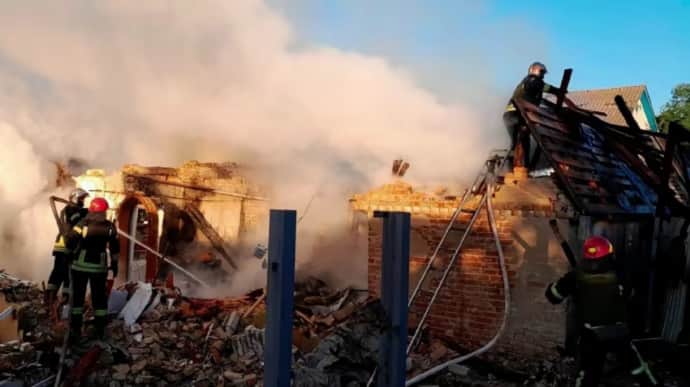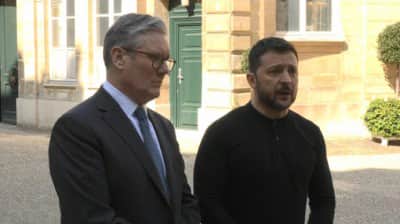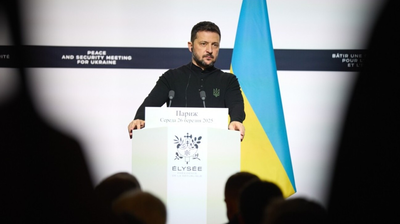ISW analyses goals of Russia's latest large-scale attacks on Ukraine

Experts at the Institute for the Study of War (ISW) believe that the latest Russian strikes are intended to degrade Ukraine's power grid and depleted air defences before the arrival of US security assistance.
Source: ISW
Details: The report notes that Russian forces carried out large-scale missile and drone strikes on Ukraine's energy infrastructure on the night of 7-8 May, further exerting pressure on Ukraine's exhausted air defence capabilities ahead of the arrival of major US and Western security assistance.
Analysts note that this is the fifth large-scale Russian missile and drone strike on Ukrainian energy infrastructure since 22 March 2024.
In addition, the ISW says Russian troops have also stepped up strikes on Ukrainian transport infrastructure in recent weeks, apparently in an effort to disrupt Ukrainian ground lines of communication and limit the flow of expected US security assistance to the battlefield.
Russian forces continue to aggressively attack Ukrainian energy facilities with a limited series of large-scale missile and drone strikes, signalling that Russia is prioritising efforts to disrupt the power grid.
Alternatively, it may seek to use a larger number of missiles to weaken the Ukrainian air defence umbrella in close proximity to energy facilities and cause significant damage.
To quote the ISW’s Key Takeaways on 8 May:
- Russian forces conducted large-scale missile and drone strikes targeting Ukrainian energy infrastructure on the night of 7 to 8 May, continuing to exploit Ukraine's degraded air defence umbrella ahead of the arrival of US and Western security assistance at scale.
- Recent satellite imagery of depleted Russian military vehicle and weapons storage facilities further indicates that Russia is currently sustaining its war effort largely by pulling from storage rather than by manufacturing new vehicles and certain weapons at scale.
- Russia is relying on vast Soviet-era stores of vehicles and other equipment to sustain operations and losses in Ukraine at a level far higher than the current Russian DIB could support, nor will Russia be able to mobilise its DIB to replenish these stores for many years.
- The Georgian State Security Service (SUS) is employing standard Kremlin information operations against Georgians protesting Georgia's Russian-style "foreign agents" bill following the lead of Georgian Dream party founder and former Georgian Prime Minister Bidzina Ivanishvili.
- Armenia's efforts to distance itself from Russia are increasingly forcing the Kremlin to acknowledge issues in the bilateral relationship.
- Lithuanian Prime Minister Ingrida Šimonytė stated that the Lithuanian government has granted permission for Lithuania to send troops to Ukraine for training missions in the future.
- Reports indicate that there is an available open-source tool that allows people to search by specific coordinates for Telegram users who have enabled a certain location-sharing setting.
- Russian forces recently advanced near Svatove, Kreminna, and Avdiivka and in the Donetsk-Zaporizhzhia Oblast border area.
- Russian Defence Minister Sergei Shoigu continues to highlight Russian formations involved in Russia’s invasion of Ukraine.
Support UP or become our patron!






